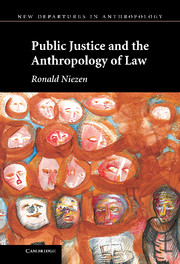One - The imagined order
Published online by Cambridge University Press: 05 June 2012
Summary
The ethnography of the unknowable
Anthropology bases its distinctiveness as a discipline on a method of long-term social interaction, getting to know a community intimately through face-to-face dialogue, together with sustained close attention to the details of everyday life. Knowing this, I am nevertheless setting out here to break with this source of anthropologists’ disciplinary identity by discussing social actors who are intangible, abstract, notoriously unpredictable and largely unknowable. In a certain sense, they are figments of the imagination, though they act together in ways that largely determine our cultural, political and legal landscapes. Together, the members of this society are popularly known as the public – though there is of course more than one vaguely identifiable public with more than a single repertoire of preferences, and it is usually more appropriate to use the plural term “publics.”
It might reasonably be argued that looking at publics is not the business of an anthropologist, that this is the domain of political scientists, sociologists, social psychologists and others who have painstakingly developed methods for probing the dominant trends of opinion, most publicly (and sordidly) in the course of political campaigns. My answer to this is that publics, however intangible, have also become part of the social worlds of those whom it is possible to know intimately. To take this point further, the processes by which people define who they are, above all the ways they articulate and defend their collective rights and shape and represent their distinct cultures, are now often negotiated and mediated in collaboration with distant publics. I am interested in publics because they have become an important part of the social imaginations and dynamics of identity of those with claims of culture.
- Type
- Chapter
- Information
- Public Justice and the Anthropology of Law , pp. 1 - 25Publisher: Cambridge University PressPrint publication year: 2010

